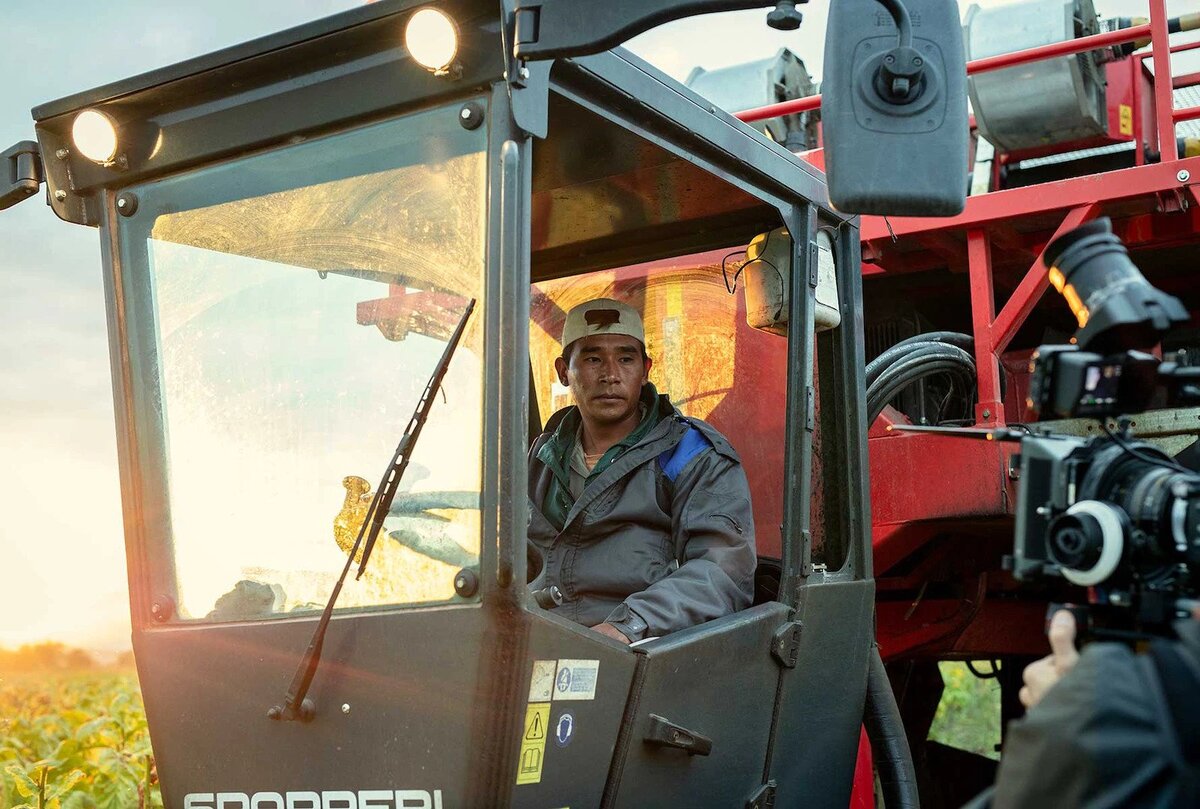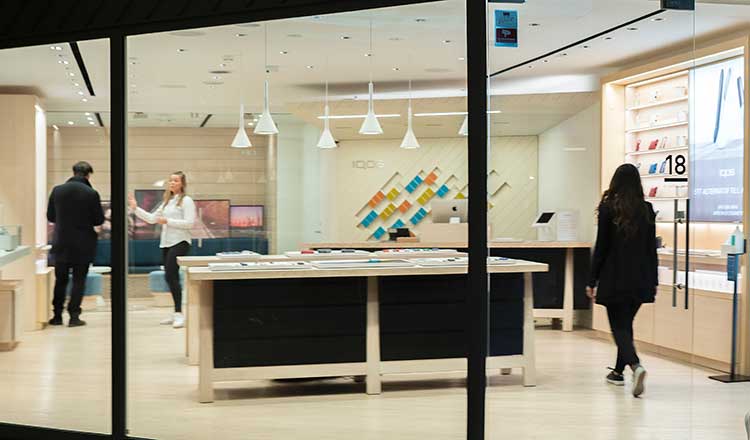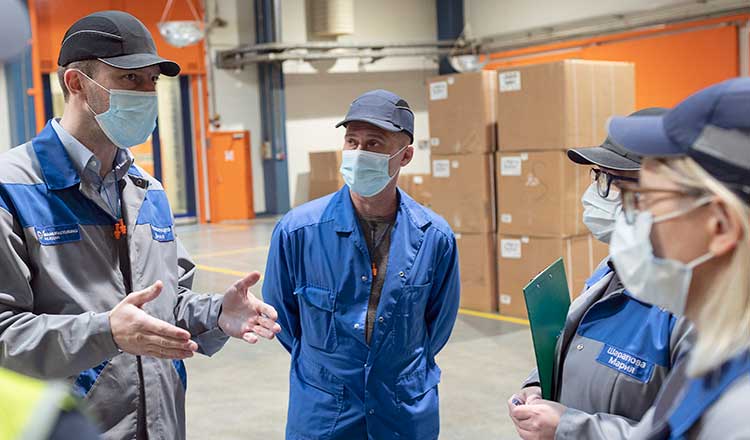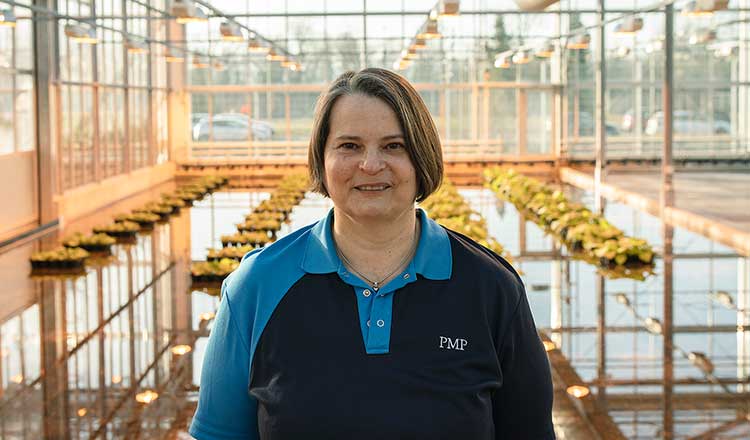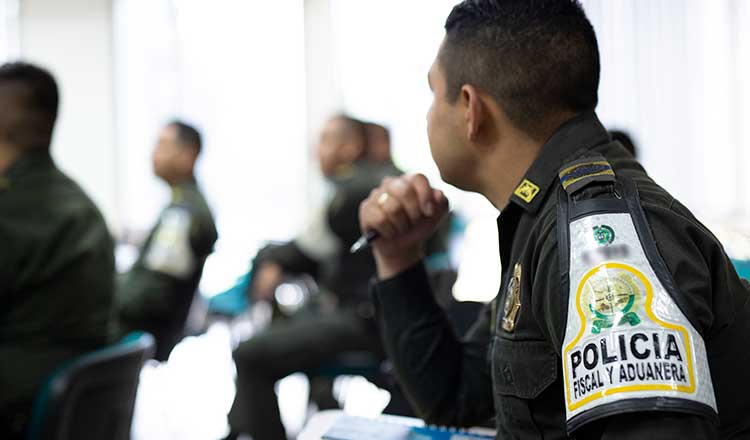| INTEGRATED REPORT 2020 |
Our supply chain accounts for a significant portion of our potential social and environmental risks and impacts, which we are committed to managing and addressing responsibly. It is also a challenging aspect to tackle, as we need to engage and influence a large number of suppliers—companies with different strategies, priorities, and cultures—to onboard them on our sustainability journey and to jointly commit and deliver on our ambitions.
Topic description
At PMI, sustainable supply chain management starts with establishing our ambitions for and expectations of our suppliers through our Responsible Sourcing Principles (RSP) and Good Agricultural Practices (GAP).
Ultimately, it means embedding sustainability across our procurement strategies and practices, identifying and managing risks and impacts, and continuously evaluating and supporting our suppliers and contracted farmers as they work to align their sustainability efforts with our requirements.
Sustainable supply chain management is a tier 1 topic within our strategic pillar Operating with excellence.

Our progress in 2020
read more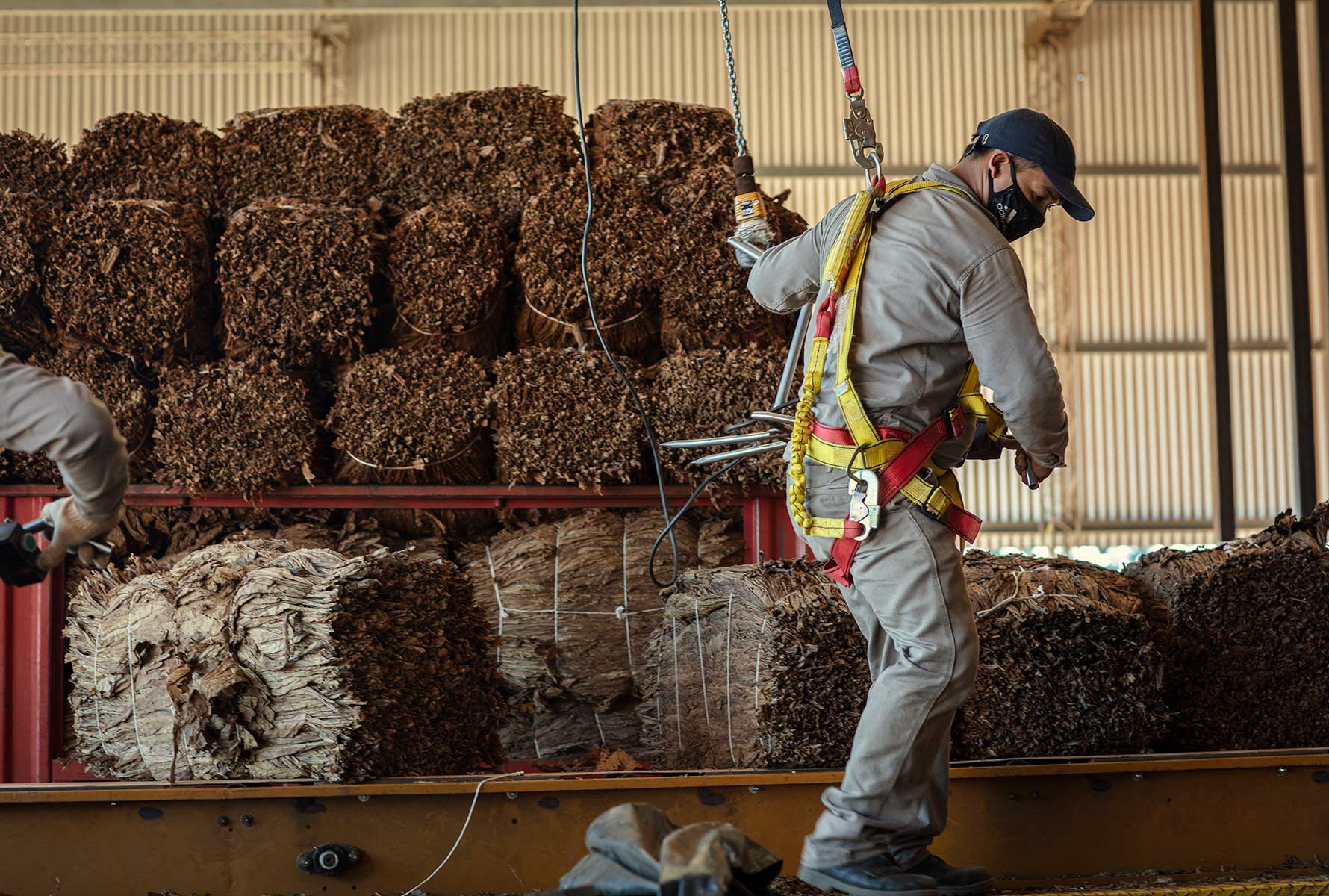
The right thing to do
Our supply chain is central to our business, and sustainability is essential to protecting and developing our supply chain. Our operations rely on securing high-quality, cost-effective, and fit-for-use materials and services from suppliers that are selected and managed by PMI to also adhere to our environmental, social, and governance (ESG) requirements.
We strongly believe that PMI has an important role in engaging with our suppliers to minimize our social and environmental footprint and in bringing positive social, environmental, and economic value to those with whom we collaborate.
Sustainable supply chain management plays a vital role in safeguarding human rights, and labor rights, as well as protecting the health and safety of workers. Optimally, it also serves to resolve gender-related inequalities and inequities, and alleviate poverty. Moreover, it represents a key lever in mitigating the adverse impacts of climate change, reducing greenhouse gas emissions, protecting forests and biodiversity, and promoting energy efficiency, water stewardship, and waste management.
The business case
The increasing environmental, social, and economic impacts of global supply chains and the growing consumer expectations for greater sustainability and transparency led PMI to integrate sustainability in our end-to-end supply chain management. This shift is reflected by an understanding that a sustainable supply chain brings new and significant value creation opportunities while at the same time contributing to the greater good. Besides that, traditional objectives including cost optimization, ensuring continuity of our operations, and reducing time required for preparing the materials for transportation allow better reaction to business challenges. In addition to strengthening regulatory compliance and preventing reputational risks, responsible supply chain management supports our ability to secure the resources needed to deliver on our company purpose and make tangible positive contributions to environmental and social issues. Agile, reliable, and high-quality suppliers are also critical to our ability to innovate and deploy our smoke-free products rapidly at scale, and respond to consumer feedback, which in turn allows us to acquire more adult nicotine users, grow market share, and benefit from the growth in top- and bottom-line performance that this implies. Further, improving collaboration with our suppliers and our knowledge of their operations enables us to strengthen and broaden partnerships. Such partnerships are key to sustainability, innovation, and growth, allowing us to accelerate progress toward achieving our company targets.
Our aim:
100%
Percentage of critical suppliers from whom PMI sources sustainably by 2025
Achieving our aims
We aim to purchase goods and services from suppliers at best value, commensurate with business requirements, while appropriately managing supply, financial, legal, quality, and sustainability requirements. We seek to continuously identify and address potential and current risks while also seizing opportunities to create a positive impact in the communities in which we and our suppliers operate, thereby increasing the sustainability performance of our supply chain. We work with our suppliers and contracted farmers to achieve a solid economic performance and tangible environmental and social improvements.
Our approach to sustainable supply chain management is built on the following principles and values:
- Proactive engagement: Engagement is at the core of responsible sourcing at PMI. Successful partnerships require an open and transparent relationship and ongoing communication in which expertise is shared and built together, both in one-to-one activities and through participation in relevant multi-stakeholder and industry initiatives.
- Risk mitigation: We take a risk-based approach, focusing our efforts on where they can have the greatest impact. Establishing risk-based criteria enables us to identify critical suppliers, tailor our due diligence tools and actions, and target interventions to address inherent risks especially with focus on strategic supply chains, such as electronics and tobacco leaf.
- Continuous improvement: By proactively strengthening collaboration and engagement with our suppliers, we clearly achieve greater commitment and support from our suppliers to continuously improve their sustainability performance and achieve the highest standards of compliance.
- Programs with impact: We leverage our reach and increasing understanding of our supply base to implement impactful programs in our key sustainability focus areas, such as those pertaining to our carbon neutrality, zero deforestation, and zero child labor ambitions.
Overview of our supply chain in 2020
With over 28,000 tier 1 suppliers across more than 175 markets, our supply chain spend amounted to approximately USD 10.1 billion in 2020.
Our global supply chain is supporting our two main finished product streams and it is organized in seven categories managed by our Leaf (for tobacco) and Procurement (for the other six categories) organizations.
Over the years, the management of our supply chain has proven sufficiently flexible and efficient to support our operations’ evolving needs and PMI’s significant business transformation. For instance, we created a new procurement category in 2016 dedicated to the supply of smoke-free electronic devices and accessories, which already accounted for 9.6 percent of our total spend in 2020. And the proportion of resources allocated to smoke-free products versus combustible cigarettes continues to grow across our supply chain. In our tobacco supply chain, the share of our purchased volume directed to the manufacture of combustible cigarettes continues to decline while the proportion dedicated to the production of consumables for heated tobacco products increases. Overall, we experience a gradual decrease in volumes sourced, as heated tobacco products use around half the amount of tobacco required by combustible cigarettes at most. In total, across our main direct spend categories (i.e., tobacco leaf, direct materials, and electronic devices and accessories), 33 percent of our spend was directed toward smoke-free products in 2020.
We aim to source sustainably from all our critical suppliers by 2025. Critical suppliers are those that manufacture or sell components used in the manufacture of PMI finished products.
To meet our ambition of sourcing sustainably by 2025, we will require all our critical nontobacco tier 1 suppliers to undergo an evaluation of their sustainability performance through an assessment in our due diligence STEP (Sustainable Transformation Enables Performance) platform. Those that achieve a satisfactory score demonstrating compliance with PMI’s Responsible Sourcing Principles (RSP) will be considered sustainable. In addition, we consider all tobacco farmers contracted by PMI or by our tobacco suppliers critical. Sourcing sustainably means continued contractual commitment to PMI’s RSP and Good Agricultural Practices (GAP) by all our tobacco suppliers and monitoring of their adherence to GAP through yearly self-assessments—complemented with on-site audits and on-the-ground reviews. At the farm level, sustainable sourcing requires monitoring by field technicians of GAP implementation, through both planned and unannounced visits to all contracted farms several times a year, and addressing any issue raised. Non-compliance can lead to contract termination for Agricultural Labor Practices (ALP) violation, or supplier lot rejection if exceeding maximum limits for tobacco lot integrity.
PMI’s supplier due diligence platform: STEP
Our supply chain sustainability strategy is grounded in our Responsible Sourcing Principles (RSP), which align with the UN Guiding Principles on Business and Human Rights, the Ten Principles of the UN Global Compact, and the International Labour Organization (ILO) Conventions. The RSP, together with its corresponding Implementation Guidance, set process and performance standards for our suppliers of materials and services, from the direct materials used in the manufacturing of our products to the goods and services required to run our business.
Sustainability work in our tobacco supply chain is managed by our Leaf department and governed by our Good Agricultural Practices (GAP) and our Agricultural Labor Practices (ALP) Code.
The operationalization of GAP and ALP occurs at farm level via the 2,675 field technicians, who work year-round with the farmers contracted by PMI and our suppliers.
Adherence to our RSP—and GAP for our tobacco supply chain—is part of our contractual agreements with suppliers. On an ongoing basis, we monitor the activities of our critical suppliers through a suite of tools, including third-party assessments, on-site audits, and field visits.
Sustainable sourcing of goods and services goes beyond the work of our Procurement and Leaf teams and involves strong cross-functional collaboration within PMI.
Globally, our supply chain categories exposed to the highest sustainability risk are:
- Tobacco production across Asia, Africa, and South America, with main risks pertaining to working conditions, child labor, climate change, and access to water
- Electronics manufacturing, with the main risks relating to the working conditions of workers
- Wood and paper materials, with main risks linked to deforestation

Our progress in 2020
read more
